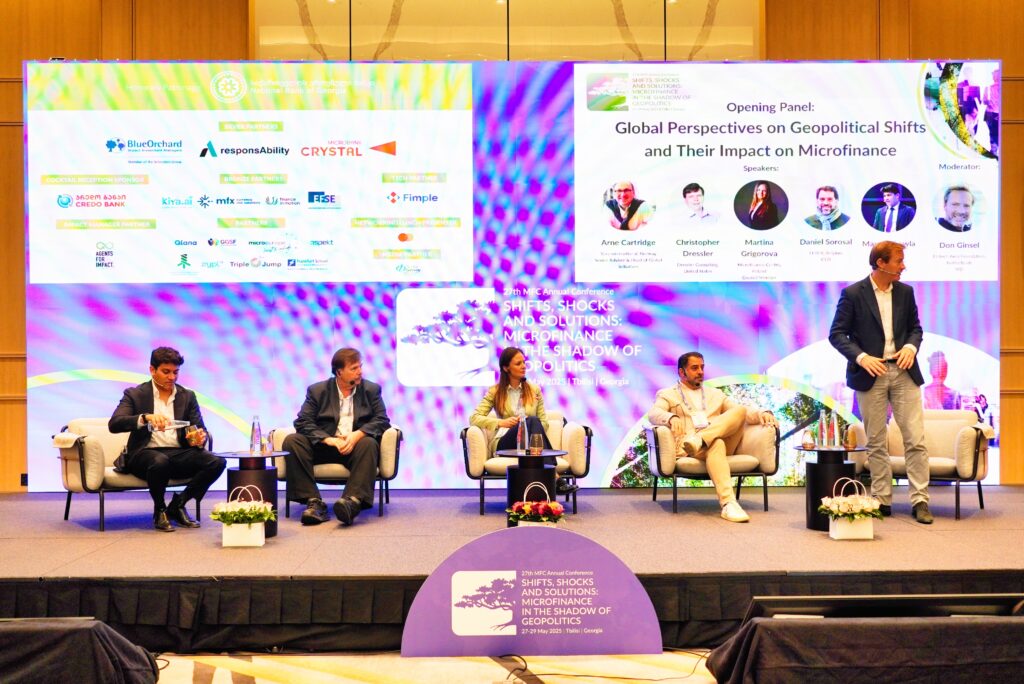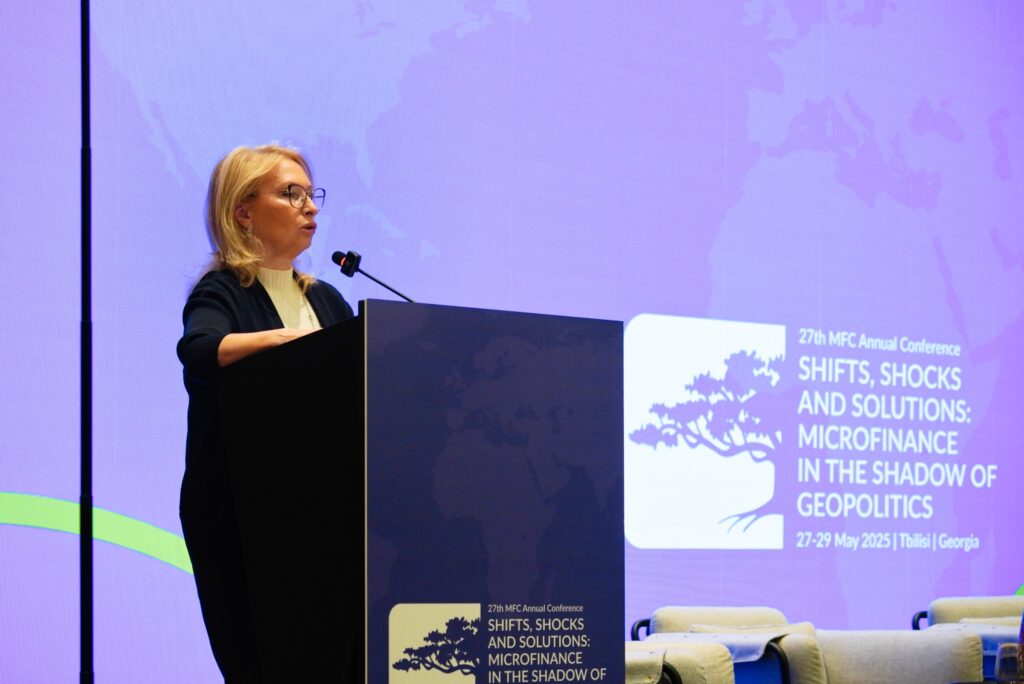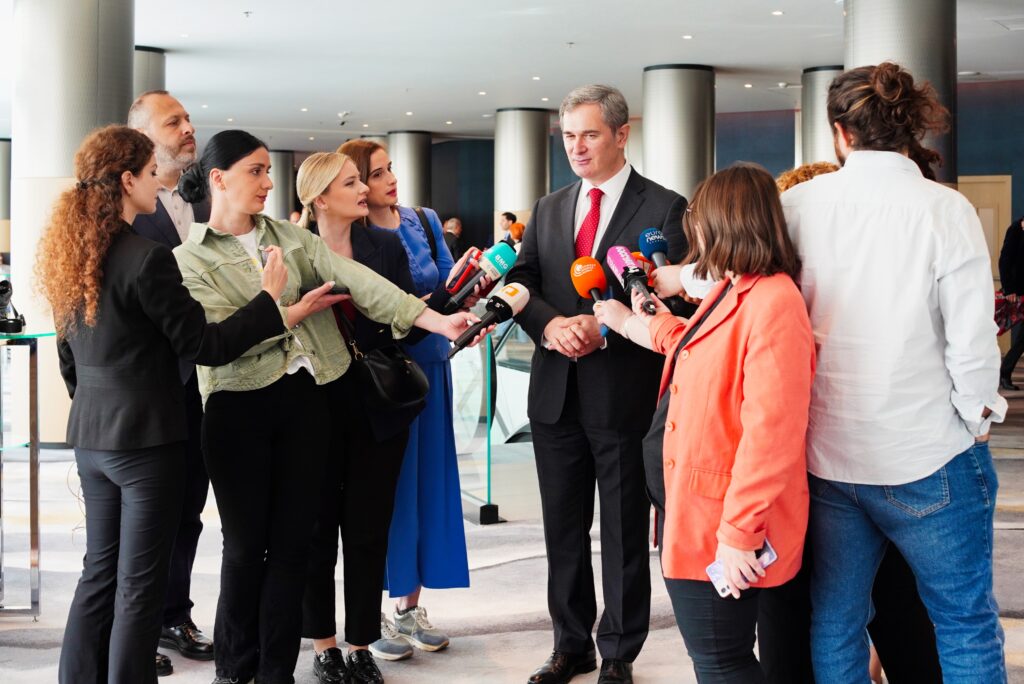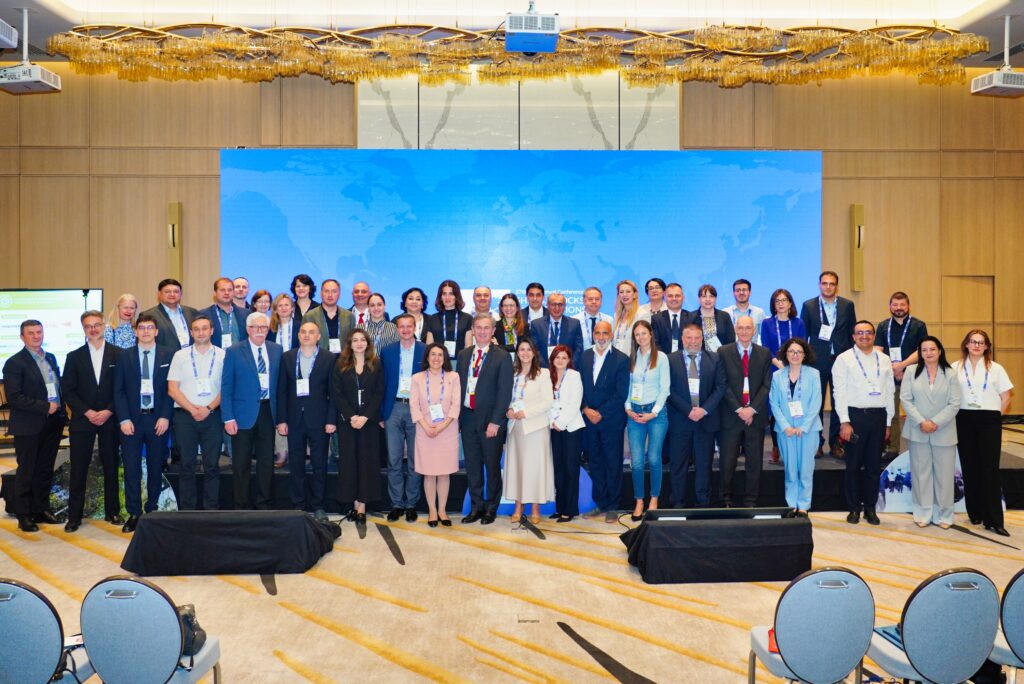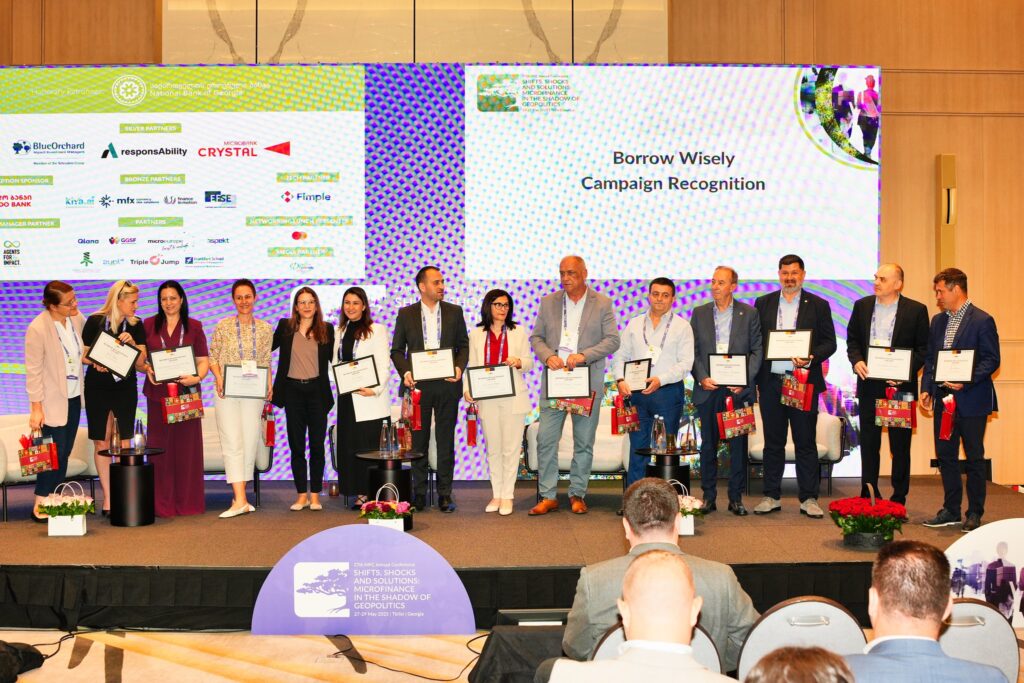27th MFC Annual Conference Through Highlight Video, Remarkable Images and Media Coverage
The 27th MFC Annual Conference took place in the historic city of Tbilisi, Georgia, from 27 to 29 May 2025. With the support of the Georgian Association of Microfinance Institutions, the event convened 445 professionals representing microfinance institutions, investors, regulators, development partners, and technology providers from more than 40 countries.
Under the theme Shifts, Shocks and Solutions: Microfinance in the Shadow of Geopolitics, the conference provided a platform to reflect on how global disruptions – ranging from armed conflict and economic instability to climate change and digital transformation – are reshaping the future of inclusive finance. Discussions focused on the implications of these challenges for low-income populations, micro and small enterprises, and the institutions that serve them.
The opening sessions set the tone for honest reflection on the fragility of cross-border financing and the urgent need for institutional resilience. The CEO Forum, held in a closed setting, enabled leaders to engage in frank dialogue around strategic priorities and emerging risks, particularly in volatile regions.
Climate change emerged as one of the most urgent concerns. Panels explored climate-smart finance, sustainable agriculture, and the role of MFIs in building environmental resilience. There was consensus that microfinance institutions need to evolve into agents of climate adaptation, especially for rural and underserved populations. Advances in data analytics and agri-tech were also presented as promising tools for more sustainable and inclusive farming.
Digital transformation was another key theme. Conference participants examined the growing role of artificial intelligence in credit scoring, the implementation of mobile-first service models, and innovations in core banking infrastructure. While technology offers powerful opportunities to scale inclusion, several sessions highlighted the importance of ensuring that digital tools are accessible and equitable, particularly for digitally excluded communities. The role of public digital infrastructure in enabling true financial inclusion was a recurring point of emphasis.
The ESG (Environmental, Social, and Governance) agenda was also featured prominently. Panelists discussed how MFIs can embed ESG principles into daily operations – from risk management and impact reporting to governance and transparency. Participants agreed that ESG considerations are no longer optional but must be treated as core to mission-aligned finance.
Inclusive finance remained at the heart of the discussions, with sessions dedicated to gender-lens investing, youth entrepreneurship, and community-driven innovation. Presentations from institutions across Eastern Europe, Central Asia, and the Caucasus region illustrated the potential of localized solutions to achieve systemic impact.
One of the conference highlights was a high-level regulatory roundtable hosted by MFC. This session brought together representatives from the National Bank of Georgia, the National Bank of the Kyrgyz Republic, and the Central Bank of the Republic of Azerbaijan, alongside microfinance associations from across the ECA region. The group exchanged insights on recent developments, including Azerbaijan’s newly adopted Strategic Framework for Microfinance, Georgia’s forthcoming microfinance legislation (expected in 2025), and green finance and gender-focused initiatives underway in Kyrgyzstan. The discussion concluded with a commitment to deeper collaboration and continued policy dialogue to advance a supportive regulatory environment across the region.
Beyond the formal sessions, the conference fostered meaningful connections through networking meetups, an investor and fintech market fair, a cocktail reception, and a gala dinner. Attendees left with new partnerships, shared insights, and renewed motivation to drive positive change.
According to the post-event survey, 90% of participants rated the speakers as highly professional, 77% found the content directly relevant to their work, and 95% felt they had sufficient opportunities for networking and peer exchange.
In summary, the 27th MFC Annual Conference was more than a convening – it was a call to action. As the microfinance sector continues to navigate an increasingly complex global context, the discussions in Tbilisi underscored the need for innovation, collaboration, and a shared commitment to inclusive growth. The road ahead may be uncertain, but with strategic foresight and collective leadership, the microfinance community is well positioned to adapt and lead.
The event was made possible through the generous support of JSC MFO Crystal, Fimple, Finance Ltd, MFX Solutions, Frankfurt School of Finance & Management, Q-Lana (CEFINI), Agents for Impact, EFSE, Global Gender-Smart Fund, Mastercard, Aspekt, responsAbility Investments AG, Kyia.ai, zypl.ai, Credo Bank, and MicroEurope.

